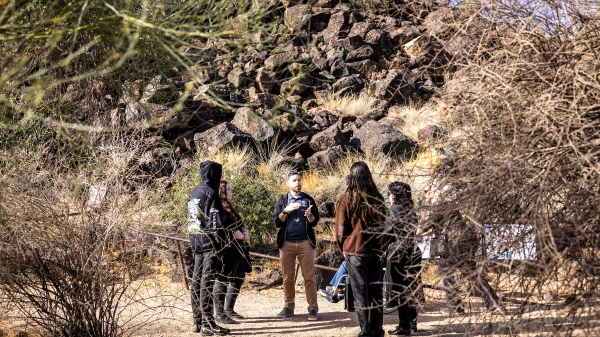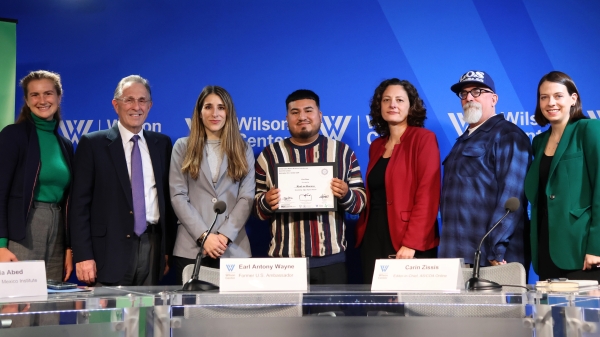ASU’s Humanities Institute announces 2024 book award winner

"Nobleman and Death," a print by Hans Holbein from his book "The Dance of Death," is featured in Jo Guldi’s “The Long Land War." Photo of woodcut courtesy of Rijksmuseum/public domain
Arizona State University’s Humanities Institute (HI) has announced “The Long Land War: The Global Struggle for Occupancy Rights” (Yale University Press, 2022) by Jo Guldi as the 2024 HI Book Award winner. Guldi is a professor of quantitative methods at Emory University.
“We are thrilled to honor Professor Guldi’s contribution to the global understanding of land reform, social justice and environmental sustainability,” said HI Associate Director Curtis Austin. "'The Long Land War’ is a book that should inspire scholars at all levels not only to critically engage with the historical and ongoing struggles for land rights, but also to rethink their approach to land politics and the fight for equitable resource distribution."
Established in 2008, this annual award celebrates outstanding writers whose contributions to the humanities foster new directions for their discipline. University presses are encouraged to nominate books for consideration by a selection committee comprised of ASU faculty associated with the Humanities Institute. Every even-numbered year, the HI Book Award is presented to a non-ASU scholar who has published a work in the past two years. In alternate years, the award goes to an ASU faculty member.
Guldi’s research crosses many disciplines and fields — from history to digital humanities and infrastructure studies to political philosophy. She teaches courses in digital history, information theory, British history from the sixteenth century to the present, as well as histories of landscape and technology. Reflecting Guldi’s wide-ranging teaching interests, “The Long Land War” brings together an astonishing array of archives and documents to examine 20th-century history as it intersects with land rights.
The book is especially notable for its interdisciplinary engagement with archives, artworks and maps, as well as the scholarship that influenced human rights-driven social movements during the turbulent 1960s. Ultimately, Guldi’s rich study encourages the reader to rethink social movements that have advocated for food, water access and shelter.
The “long land war” the book’s title invokes refers to the right to occupy land without the fear of being evicted. This frame enables broader connections to be drawn and impactful claims to be made, as Guldi skillfully weaves together intricate histories of Irish dispossession and immigration, the displacement of Indigenous communities in the U.S., and agriculture and land occupancy in the Global South.
Editor's note: This year’s award ceremony, which was scheduled to take place on Thursday, Nov. 7 on ASU's Tempe campus, was canceled due to the author being unable to attend last minute.
More Arts, humanities and education

Petroglyph preserve celebrates 30th anniversary with ancient, modern tales
The Deer Valley Petroglyph Preserve provides a beautiful walk through a pristine desert where chuckwalla lizards are as plentiful as the cacti that comes in many shapes and sizes.It’s also a step…

Kaleidoscope short film contest inspires powerful binational filmmaking in its second year
“We come to this country not to steal anybody’s jobs but to take advantage of the opportunities that the rest ignore. We’ve been taking care of the American soil for many years. But our hands will…

ASU's Neal Lester reflects on life, death of poet Nikki Giovanni
When Neal Lester heard on Monday that poet and activist Nikki Giovanni had died, the news hit hard.Lester, the founding director of Arizona State University’s Project Humanities and a Foundation…